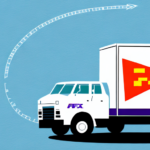2023 Ecommerce Predictions: 33 Industry Experts Reveal Your Biggest Opportunities for the New Year
Welcome to our comprehensive guide on the biggest ecommerce opportunities for 2023! We've pooled insights from 33 industry experts to give you an in-depth overview of what's in store for the ecommerce landscape in the coming year. From the continued growth of social commerce to the emergence of new payment technologies, there are plenty of exciting opportunities for ecommerce businesses to capitalize on in 2023.
The Growth of Social Commerce: How to Leverage Social Media for Your Ecommerce Business in 2023
Social commerce has been on the rise for the past few years, and it's not slowing down anytime soon. By leveraging social media platforms such as Instagram and Facebook, ecommerce businesses can reach new audiences and convert existing followers into customers. In 2023, social commerce sales are projected to reach $185 billion, reflecting a 31% increase from the previous year (eMarketer).
Businesses are expected to increase investment in social commerce strategies, utilizing new features like Instagram Checkout to streamline the purchasing process. To maximize the benefits of social commerce:
- Maintain a robust social media presence: Regularly post engaging content that resonates with your target audience.
- Engage with followers: Respond to comments and messages to build community and trust.
- Partner with influencers: Collaborate with influencers who align with your brand to expand your reach.
Additionally, social commerce provides valuable data on customer behavior. By analyzing engagement metrics and purchase patterns, businesses can tailor their marketing strategies and product offerings to better meet customer needs, enhancing satisfaction and loyalty.
The Rise of Voice Commerce: How Voice-Enabled Shopping Will Revolutionize Ecommerce in 2023
Voice-enabled shopping has been gaining traction in recent years, and 2023 is poised to be a pivotal year for its mainstream adoption. With smart assistants like Amazon's Alexa and Google Home, consumers can effortlessly order products using voice commands. Voice commerce sales are expected to grow by 40% this year, driven by the convenience and hands-free shopping experience it offers (Forrester Research).
To capitalize on this trend, ecommerce businesses should:
- Optimize for voice search: Incorporate natural language keywords and phrases that customers are likely to use when speaking.
- Ensure product discoverability: Structure product information to be easily accessible through voice queries.
- Enhance user experience: Use AI and machine learning to provide personalized recommendations based on customer preferences.
The convenience of voice commerce allows consumers to multitask while shopping, which can lead to increased sales and customer loyalty. Moreover, personalized recommendations through AI-driven analytics can enhance the shopping experience, driving higher conversion rates.
The Emergence of Augmented Reality: How AR Will Change the Way Consumers Shop Online in 2023
Augmented Reality (AR) is set to revolutionize the ecommerce industry in 2023 by offering immersive shopping experiences. AR allows customers to visualize products in their own environment before making a purchase, significantly enhancing confidence in their buying decisions. Industries such as furniture and home decor are leading the way in adopting AR technologies.
Key steps to integrate AR into your ecommerce strategy include:
- Invest in AR technology: Utilize platforms and tools that support AR integration.
- Create high-quality 3D models: Ensure that product representations are accurate and detailed.
- Enhance mobile experiences: Optimize AR features for mobile devices to reach a broader audience.
Beyond improving the customer experience, AR provides valuable data on how customers interact with products, allowing businesses to refine their offerings and marketing strategies based on real-time insights.
Niche Market Opportunities: Identifying and Capitalizing on Emerging Trends in Ecommerce for 2023
One of the most significant opportunities in ecommerce for 2023 lies in targeting niche markets. As competition intensifies, businesses that cater to specific customer needs and preferences can achieve greater success. Trends such as sustainability and inclusivity offer ample opportunities for differentiation.
To identify and exploit niche markets:
- Conduct market research: Analyze market gaps and emerging trends to find underserved segments.
- Gather customer feedback: Use surveys and reviews to understand specific customer needs.
- Develop tailored products: Create offerings that address the unique requirements of your target niche.
By focusing on niche markets, ecommerce businesses can build strong brand loyalty and establish themselves as leaders within specialized segments.
The Importance of Personalization: Leveraging Data to Create Tailored Shopping Experiences in 2023
Personalization remains a cornerstone of successful ecommerce strategies in 2023. Utilizing customer data and machine learning algorithms enables businesses to create customized shopping experiences that enhance engagement and boost conversion rates. Personalized experiences can include product recommendations, tailored promotions, and individualized content.
Effective personalization strategies involve:
- Data collection and analysis: Gather and analyze data on customer behavior, preferences, and purchase history.
- Segmenting audiences: Divide customers into segments based on shared characteristics to deliver more relevant experiences.
- Implementing AI-driven recommendations: Use machine learning to suggest products that align with individual customer interests.
Personalization not only drives sales but also fosters long-term customer loyalty by making shoppers feel valued and understood.
The Future of Mobile Commerce: Optimizing Your Site for Mobile Devices and the Latest Technologies in 2023
Mobile commerce continues to dominate the ecommerce landscape, with mobile sales accounting for an increasing share of overall ecommerce revenue. In 2023, optimizing your site for mobile devices is paramount to capturing and retaining customers. Mobile users expect fast, seamless, and intuitive shopping experiences.
To enhance your mobile commerce strategy:
- Responsive design: Ensure your website adapts seamlessly to various screen sizes and devices.
- Fast loading times: Optimize images and code to reduce page load times, improving user experience.
- Mobile-friendly checkout: Simplify the checkout process to reduce cart abandonment rates on mobile devices.
Additionally, embracing the latest technologies such as progressive web apps (PWAs) can further enhance mobile user experiences by offering app-like functionalities without requiring a separate app download.
New Payment Technologies: What You Need to Know About Crypto, NFTs, and Other Emerging Payment Options in 2023
The landscape of payment technologies is rapidly evolving, presenting new opportunities for ecommerce businesses to offer diverse payment options. In 2023, the adoption of cryptocurrencies and Non-Fungible Tokens (NFTs) is on the rise, driven by increasing consumer interest and acceptance.
To stay competitive, businesses should:
- Integrate multiple payment gateways: Offer a variety of payment methods to accommodate different customer preferences.
- Understand cryptocurrency benefits: Provide secure and decentralized payment options that appeal to tech-savvy consumers.
- Explore NFT integrations: Utilize NFTs for exclusive product offerings or loyalty programs.
By embracing these emerging payment technologies, ecommerce businesses can enhance the customer experience, reduce transaction friction, and tap into new customer segments.
The Power of Influencer Marketing: How to Collaborate with Influencers to Boost Your Sales in 2023
Influencer marketing continues to be a potent strategy for ecommerce businesses aiming to expand their reach and drive sales. In 2023, collaborating with influencers who have authentic connections with their audiences can yield significant returns.
Key strategies for effective influencer marketing include:
- Identify the right influencers: Choose influencers whose values align with your brand and who engage with your target demographic.
- Develop authentic partnerships: Foster genuine relationships with influencers to ensure authentic promotion of your products.
- Measure campaign performance: Track key metrics such as engagement rates, traffic, and sales to assess the effectiveness of influencer collaborations.
By leveraging the trust and authority of influencers, ecommerce businesses can enhance brand visibility, build credibility, and drive higher conversion rates.
Logistics and Fulfillment Optimization: Streamlining Your Supply Chain for Increased Efficiency and Customer Satisfaction in 2023
Efficient logistics and fulfillment are critical components of a successful ecommerce operation. In 2023, optimizing your supply chain can lead to reduced costs, faster delivery times, and improved customer satisfaction.
Strategies to enhance logistics and fulfillment include:
- Invest in automation: Utilize automated systems for inventory management, order processing, and warehouse operations to improve efficiency.
- Partner with reliable logistics providers: Collaborate with carriers that offer timely and cost-effective shipping solutions.
- Implement real-time tracking: Provide customers with real-time updates on their orders to enhance transparency and trust.
Streamlining logistics not only reduces operational costs but also ensures that customers receive their orders promptly, fostering loyalty and encouraging repeat business.
The Role of AI and Machine Learning in Ecommerce: Harnessing the Power of Automation for Better Business Outcomes in 2023
Artificial Intelligence (AI) and Machine Learning (ML) are transforming the ecommerce landscape by enabling automation and data-driven decision-making. In 2023, these technologies play a pivotal role in enhancing various aspects of ecommerce operations.
Applications of AI and ML in ecommerce include:
- Personalized recommendations: Use ML algorithms to suggest products based on individual customer behavior and preferences.
- Chatbots and virtual assistants: Implement AI-driven chatbots to provide instant customer support and handle inquiries efficiently.
- Inventory management: Utilize AI to predict demand and optimize stock levels, reducing the risk of overstocking or stockouts.
By leveraging AI and ML, ecommerce businesses can enhance operational efficiency, deliver personalized customer experiences, and make informed strategic decisions, ultimately driving better business outcomes.
Balancing Security with Convenience: Managing Fraud Risk and Maintaining User Trust in Your Ecommerce Business in 2023
As ecommerce continues to grow, so does the importance of robust security measures to protect against fraud and cyber threats. In 2023, maintaining a balance between security and user convenience is essential for preserving user trust and safeguarding your business.
Essential security strategies include:
- Implement two-factor authentication (2FA): Add an extra layer of security to user accounts to prevent unauthorized access.
- Invest in fraud detection software: Utilize advanced tools to identify and mitigate fraudulent transactions in real-time.
- Educate customers: Provide resources and guidelines on best practices for online security to empower customers to protect their information.
By prioritizing security without compromising on user experience, ecommerce businesses can build and maintain trust, ensuring long-term customer loyalty.
Building a Strong Brand Identity: Creating Authenticity and Trust Through Storytelling and Purpose-Driven Marketing Strategies in 2023
In a crowded ecommerce market, establishing a strong brand identity is crucial for standing out and fostering customer loyalty. In 2023, authenticity and purpose-driven marketing are key elements in building a compelling brand narrative.
To develop a strong brand identity:
- Focus on storytelling: Share your brand’s story, values, and mission to connect with customers on an emotional level.
- Highlight your unique value proposition: Clearly communicate what sets your brand apart from competitors.
- Invest in visual branding: Create high-quality logos, product photography, and consistent visual elements that reflect your brand’s personality.
A strong brand identity not only attracts customers but also fosters trust and loyalty, encouraging repeat business and positive word-of-mouth referrals.
Tapping into the Subscription Model Trend: How Recurring Revenue Can Benefit Your Ecommerce Business in 2023
The subscription model continues to gain popularity in ecommerce, offering businesses a reliable stream of recurring revenue and fostering long-term customer relationships. In 2023, more ecommerce businesses are expected to adopt subscription-based offerings to enhance customer retention and predict revenue.
Implementing a successful subscription model involves:
- Identifying suitable products or services: Choose offerings that provide ongoing value and meet consistent customer needs.
- Developing flexible pricing strategies: Offer various subscription tiers to cater to different customer segments.
- Creating engaging marketing campaigns: Promote the benefits of subscription services and incentivize sign-ups through discounts or exclusive perks.
Subscription models not only increase customer lifetime value but also provide valuable data on purchasing patterns, enabling businesses to refine their offerings and marketing strategies.
Understanding the Impact of Changing Consumer Habits on Ecommerce: Adapting to New Behaviors and Preferences for Success in 2023
Consumer habits and preferences are continuously evolving, influenced by factors such as technological advancements and societal changes. In 2023, ecommerce businesses must stay attuned to these shifts to remain competitive and meet customer expectations.
Key areas to focus on include:
- Adopting new technologies: Incorporate tools like chatbots and AI-driven personalization to enhance the user experience.
- Enhancing customer service: Provide responsive and empathetic support to address customer inquiries and issues effectively.
- Emphasizing sustainability: Align your business practices with environmentally friendly initiatives to resonate with eco-conscious consumers.
By proactively adapting to changing consumer behaviors, ecommerce businesses can anticipate market trends, innovate their offerings, and maintain a loyal customer base.
Mastering Local SEO Strategies for Ecommerce Businesses: Targeting Local Audiences and Driving Foot Traffic to Brick-and-Mortar Stores in 2023
Local SEO remains a vital strategy for ecommerce businesses aiming to attract local customers and drive foot traffic to physical stores. In 2023, integrating local SEO tactics can enhance your online visibility within specific geographic areas, supporting both online and offline sales channels.
Effective local SEO strategies include:
- Optimize for local search terms: Incorporate location-based keywords into your website content and meta tags.
- Maintain a strong presence on local directories: Ensure your business is listed accurately on platforms like Google My Business and Yelp.
- Encourage and manage customer reviews: Positive reviews can boost your local search rankings and attract new customers.
- Utilize localized content marketing: Create content that addresses local events, news, or topics relevant to your target audience.
By mastering local SEO, ecommerce businesses can effectively target regional audiences, enhance their market presence, and drive both online and in-store engagement.
With so many exciting opportunities on the horizon, ecommerce businesses that stay attuned to changing trends and invest in new technologies are well-positioned to succeed in 2023. By focusing on personalized customer experiences, niche markets, and innovative technologies such as voice commerce and augmented reality, businesses can drive engagement and stay competitive in a rapidly evolving market.




















